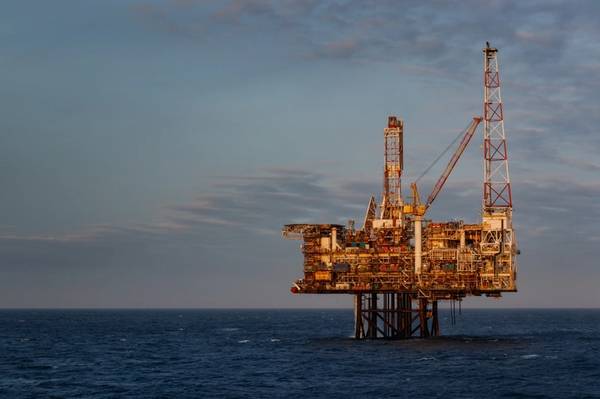
Once one of the world's key energy sources, Britain's North sea oil and gas output is poised for a further slump after shrinking by two thirds in the past 20 years, leaving the country increasingly dependent on imports.
A windfall tax introduced last year as energy prices soared prompted oil and gas producers including some of the UK North Sea's biggest TotalEnergies and Harbour to cut investment in the basin.
While the government moved on Friday to waive the levy - which hiked taxes on oil and gas producers to an overall rate of 75% - should prices fall far enough, industry sources doubted it would succeed in its stated aim of boosting energy security by encouraging investment.
"This is a step in the right direction, but many more will need to be taken to restore confidence to our sector," said David Whitehouse, chief of the UK's offshore oil, gas and renewables business association OEUK.
Further steps are not expected to be forthcoming, however, and the government itself said forecasts indicated the new price floor mechanism is unlikely to be triggered before the windfall tax, which has so far raised an additional 2.8 billion pounds ($3.51 billion) to help consumers with high energy bills, runs out in 2028.
"Show me how (Friday's announcement) increases energy security in any way," said one executive at an oil and gas producer in the North Sea, who declined to be named due to the sensitivity of the issue.
"This was an opportunity, and (the government) missed it."
From an output of around 4.4 million barrels of oil equivalent per day - more than OPEC heavyweight Iraq - at the start of the new millennium and a position as a net exporter, Britain now produces around 1.3 million boepd, with a decline to under 200,000 seen by 2050, according to UK oil and gas regulator North Sea Transition Authority (NSTA).
Demand for oil and gas through 2030 will not decline fast enough to close the gap with falling domestic hydrocarbon and rising renewable power supply, according to OEUK data, while Stifel, an investment bank active in the energy sector, estimates Britain might import around 80% of its gas needs by the end of the decade.
The government says continued oil and gas production does not stand in the way of its plans to become a net zero carbon economy by 2050.
But the opposition Labour Party, which is leading in polls ahead of next year's expected general election, says it wants to remove certain tax incentives on oil and gas producers and would axe new licenses, adding to uncertainty.
Renewables firms also say the British tax regime throttles investment but climate activists argue current windfall taxes are not enough.
"Irrespective of what happens to the price of oil and gas, the tax these companies pay should be higher, permanently," Greenpeace UK climate campaigner Georgia Whitaker said.
"This cash should be used to help insulate homes and transition the UK to cheap, clean energy, not fill the bank balances of already wealthy shareholders."
In a May sentiment survey conducted by the Aberdeen Chamber of Commerce and KPGM of 105 oil and gas companies working in the North Sea, confidence in their UK work fell from plus 36% last year to minus 37%, compared with a broadly stable reading for business outside Britain.
Overall expenditure is expected to drop by around a third over the next five years to around 10 billion pounds, according to the NSTA, less than during the height of COVID-19 lockdowns, with capital investment set to shrink even faster than operational spending.
PRICE FLOOR UNLIKELY TO BE MET
The Winter 2023 forward gas contract is currently priced around 120p/therm and Summer 2024 0#TRGBNBPSc2 around 105 p/therm. Oil futures contracts indicate Benchmark Brent crude will drop below $70 a barrel after April 2025.
"Even though forward price curves currently indicate that this relief will never kick in, the government hopes this provides sufficient downside protection to secure investment," said Claire Angell, head of energy tax at KPMG in the UK.
"However, with this being the third change to oil taxation in just over a year, fiscal uncertainty...remains a challenge for an industry whose future depends on long-term investment decisions."
A final investment decision on what would be one of the North Sea's biggest new fields in years, the 70,000 bpd Rosebank field, is earmarked for the first half of this year.
($1 = 0.7971 pounds)
How much are firms spending on UK oil and gas production? https://tmsnrt.rs/43LUNA5
Britain's biggest oil and gas producers https://tmsnrt.rs/3wNJsBV
UK oil and gas import gaps https://tmsnrt.rs/3oSv5uY
UK government revenue from oil and gas sector UK government revenue from oil and gas sector https://tmsnrt.rs/3NB5I7H
British oil and gas production https://tmsnrt.rs/3MTaLla
UK oil output vs oil demand https://tmsnrt.rs/3MIZjII
UK gas output vs gas demand https://tmsnrt.rs/3C8Dttb
(Reuters - Reporting by Shadia Nasralla; Editing by Kirsten Donovan)